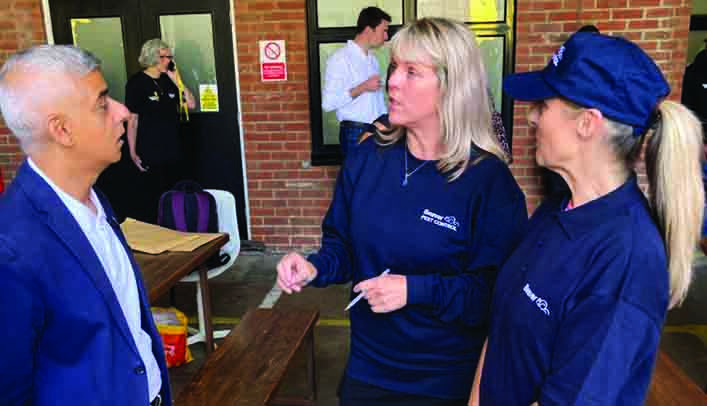Julia Pittman, head of customer strategy at Beaver Pest Control (Orkin UK); and executive board member and EDI committee chair, at BPCA; says with an ageing workforce, recruitment and retention have never been more urgent
We continue to face challenges in attracting fresh talent – particularly those who don’t already have a personal connection to the industry. Whether it’s a father and son, or a friend of a friend, the pattern is clear: we’re often recruiting from within our own networks.
It’s time to change that. And for me, that’s where Equity, Diversity, and Inclusion (EDI) comes in.
Let’s start by addressing the elephant in the room. EDI often carries baggage, especially in industries like ours that are traditionally male-dominated.
There can be a perception that EDI is about positive discrimination or lowering standards. But that simply isn’t true for our industry. In pest control, everyone must meet the same professional benchmarks: passing the RSPH Level 2 qualification, demonstrating technical competence, and being capable of carrying out the practical aspects of the job.
EDI isn’t about changing those standards – it’s about widening the pool of people who even consider applying in the first place.
One of the challenges we face is the perception of what pest control work entails. It’s often viewed as dirty, unpleasant, and incompatible with the skill sets or preferences of women. There’s some truth to the fact that the job isn’t for the faint-hearted – it can involve dealing with infestations and culling pests – but it’s also so much more than that.
As we all know, pest control plays a critical role in protecting public health, and a huge part of the job is education, problem-solving, and communication. These are skill sets that span genders, abilities, and backgrounds.
We should be asking ourselves: are we doing enough to explain the full scope of our industry? And are we doing enough to make it accessible?
EDI is about ensuring we have access to the widest possible talent pool. If we continue to recruit people who look, think, and act the same as those already in the industry, we’re limiting our potential. As a white woman in my 50s, I wouldn’t want to run a business full of people just like me. That’s not where innovation comes from. The strength of a business lies in its diversity – of thought, of experience, of perception.
A younger colleague may bring fresh insights on how to engage with a digital- first generation of customers. Someone who is neurodivergent might offer a unique approach to analysis or pattern recognition. A colleague from a different cultural background might suggest a communication style or outreach strategy we’ve never considered. And the data backs this up.
McKinsey’s 2023 report Diversity Matters Even More found that companies in the top quartile for gender diversity on executive teams were 39% more likely to outperform those in the bottom quartile.
Ethnically diverse companies were 36% more profitable. Other studies show improved employee engagement, greater innovation, and better problem-solving in diverse teams.
These aren’t ‘nice-to-haves,’ these are business imperatives.
The pest control industry has the opportunity – and I would argue, the responsibility – to reframe what a career in our sector looks like. That means proactively reaching out to underrepresented groups, investing in inclusive recruitment practices, and creating cultures where people from all backgrounds feel they can thrive.
It also means telling better stories with diverse role models to encourage recruitment. We need to shift the narrative away from rats and towards public health, sustainability, innovation, and career development.
A recent conversation on the Beauties & Beasties podcast (thank you to Hugh, Alex and Sean for having me as a guest) really helped crystallise some of this thinking and inspired this article.
One comment posed the question – paraphrased – “Why try to put a square peg in a round hole? The industry’s always been full of middle-aged white men, and that seems to work.”
It’s a fair challenge, but one I feel strongly about. Because the reality is it’s already not working. We’re struggling to recruit. We’re struggling to attract new people unless they already have a personal connection to the industry.
By limiting who we bring in, we’re also limiting the ideas, innovation, and adaptability that could help futureproof pest control for the next generation.
EDI isn’t about change for the sake of change. It’s about recognising that the world is changing, and that to survive and thrive, our industry has to reflect the communities we serve. Diversity brings business benefits. It brings fresh thinking. It brings resilience.
And in an industry that’s all about problem-solving, surely that’s something we can all get behind.
As chair of the BPCA EDI Committee and a member of the executive board, I’m proud to say we have some exciting projects launching over the coming months. We hope the industry will support them, engage with them, and help us build a more inclusive future for pest control.
Finally, I’d like to say thank you to the BPCA staff team and the entire EDI Committee for their passion, commitment, and insight – none of this progress would be possible without you.


